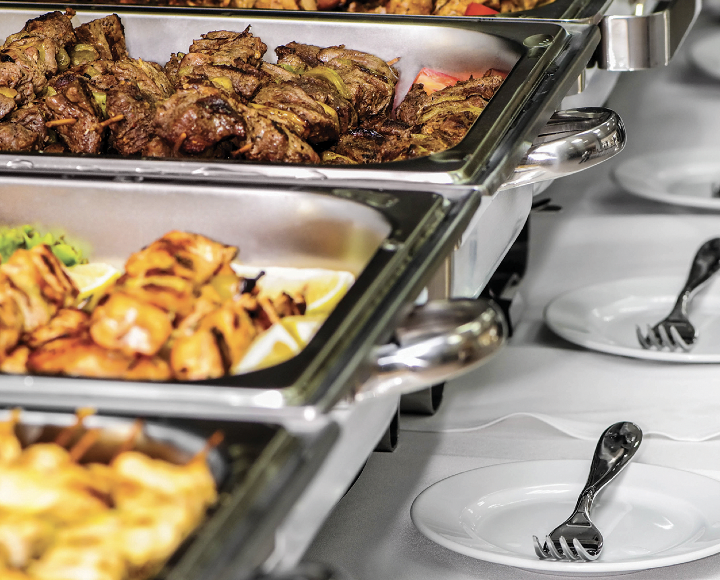Metro
Contributor
French queen Marie Antoinette is credited with a phrase that loosely translates to “Let them eat cake.” Guests at a wedding certainly will have their chance to enjoy cake, but it’s likely that wedding planners will need to offer a bit more sustenance to guests than this confectionary creation to keep them happy.
Many things stand out as memorable on a wedding day: the dress, the music, the adorable children who trip up or do some sort of zany antics down the aisle and the food. Guests often look forward to a wedding to wish a couple well in their new lives together, but also to enjoy a great meal. Couples should give careful consideration to their wedding reception menu so everyone ends the night with great memories and full bellies.
Decide on the type of service
Buffet, plated dinner, server-passed foods, or food stations are the options at couples’ disposal when planning reception dinners. The type of service often dictates the formality of the event. For example, a cocktail party where guests mingle and sample small bites throughout the night may be a more casual affair, while a plated multi-course meal is much more formal. Couples can decide which type of service fits their budgets and ideas of for the reception.
Expand your options
Largely gone are the days when guests select dishes on the R.S.V.P. months in advance and then are locked into their choices. Now guests have more options and flexibility, particularly because couples and catering venues offer greater variety. A buffet-style meal gives guests chances to sample various foods in one sitting. However, even if couples choose a plated meal, they can select packages that offer guests the greatest number of options. Be sure to include a vegetarian or vegan option, a fish option, and a standard beef or chicken option to appeal to most.
Confirm food allergies or sensitivities
It’s likely someone on the guest list will have a food allergy or sensitivity. Making sure there is no cross-contamination is a serious consideration for such guests. The person or persons should be consulted about what the person can and cannot eat, and then those requirements should be conveyed to the catering manager.
Certain people with food allergies are so leery about eating out that they may prefer to bring their own food to ensure it is safe. In this instance, ensure that the kitchen staff will be able to safely heat up or plate the food.
Food will likely be on the minds of wedding guests. Couples can ensure that their guests are satiated by making food a priority at their events.

